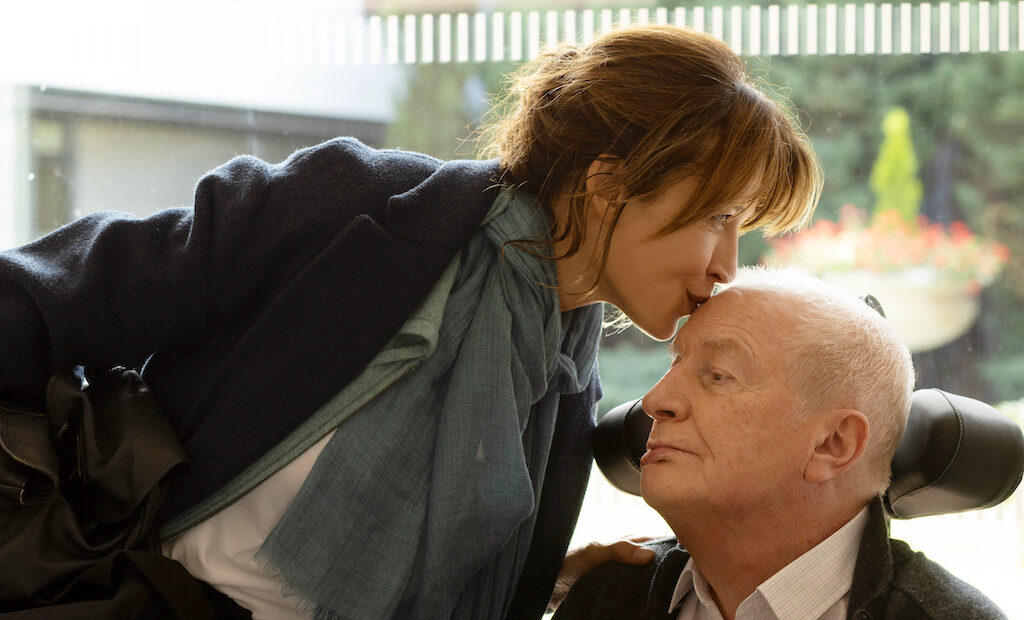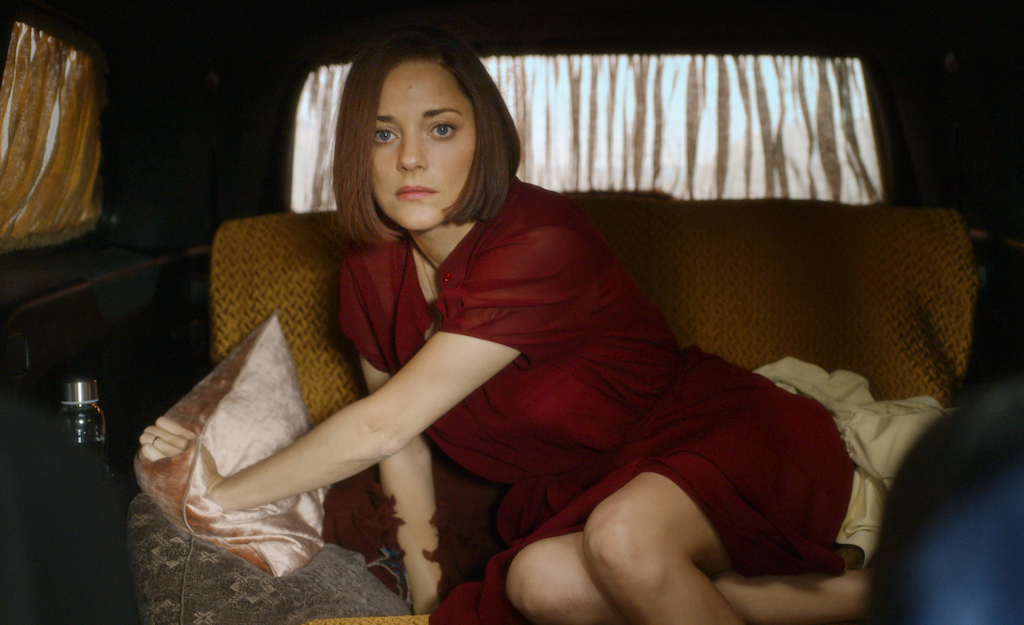Cannes 2021: Awards, predictions and highlights from Emma Kiely and Selina Sondermann

As Cannes 2021 draws to a close, two years after the last edition, our writers Emma Kiely and Selina Sondermann share with us their predictions and highlights from the festival.
Palme d’Or
Emma Kiely
There has been truly a weird mix of films in the official selection this year. From Sean Penn’s patriotism to Russian fever dreams. I obviously didn’t get to see them all, but I think French director’s François Ozon’s Everything Went Fine is the most deserving. It may not be as avant-garde or arthouse-esque as usual winners, but the impeccable acting from Sophie Marceau and André Dussolier, moving relationships between the characters and hilarious writing, it’s a true five -star film that, unlike most of the submissions at Cannes, can be enjoyed by everyone. What probably will take home the statuette, is Titane or Benedetta.
Selina Sondermann
While either Drive My Car or The Worst Person in the World would be the obvious choice due to masterful combination of narrative and artistry in both works, I am going to gamble and put my money on Titane. With progressive filmmakers Spike Lee and Jessica Hausner, there are at least two jury members who I imagine value originality above all else. It wasn’t my personal favorite, but the not-quite-horror film about a woman and her special relationship to cars is the certainly the most memorable from the official competition.
Best Director
Emma Kiely
American director Sean Baker is known for breathing colour, hope and humanity to derelict and forgotten areas of the US. He did it beautifully in The Florida Project and he did it again this year with Red Rocket. This film by no means has the sophistication of usual Cannes winners, but Baker’s balance of wide and close shots, his use of the location as a central character and overall making a Texan industrial city seem so breathtaking, he deserves this award – and I think he will actually win it. If not, Irianian director Asghar Farhadi may take it for A Hero.
Selina Sondermann
The director with most recognition is obviously Wes Anderson. If the jury focusses on design and overall mis-en-scène, the price would easily have to go to him. Every single shot of The French Dispatch wears the director’s distinctive signature. If, however, they decide to award someone who can bring out the best in his actors – elicit authentic performances – the winner would have to be the exact opposite: stylistic chameleon Joachim Trier for The Worst Person in the World.
Best Actor
Emma Kiely
Hands down, no question, the winner of this award goes straight to André Dussolier for Everything Went Fine. his portrayal of a sick man whose only source of hope in life is his death, is done with such sensitivity and humanity, even when he is slumped in his bed and looks so sad and hopeless, it breaks the audience’s heart. It’s a performance that will stay with me, bending the rules of what should make humans happy and what should make them despondent and giving one of the most honest representations of one’s struggle with their morality.
Selina Sondermann
The best male performance I have seen at this festival was Benoît Magimel in Peaceful. While Magimel has been a part of acclaimed productions in the past – Haneke’s The Piano Teacher immediately comes to mind – I’m under the impression he’s had more of a pretty boy image so far. In Peaceful his character goes from being a confident acting teacher – young at heart, shaking up his students and flirting with nurses – to a broken man struggling with cancer and losing the fight.
Since the film is running Out of competition though, best actor will be awarded to an understated performance in a work I haven’t seen and cannot speak to: A Hero or Petrov’s Flu, perhaps?
Best Actress
Emma Kiely
There are three strong contenders for Best Actress. First is festival favourite Marion Cotillard for Annette, who pumped the disjointed and bizarre film with such some sort of connection with the audience. Her subtle gentility and protection of her daughter was the only thing the viewers would really identify with; and without her performance, the film would have got lost in its own chaos. Next is Sophie Marceay for Everything Went Fine, for her portrayal of a grieving daughter who must organise her father’s assisted death. The film follows her closely so there’s a lot of opportunity for mistakes, but not one is made and her scenes solo are just as powerful as those opposite other characters. Lastly is Noemie Merlant for Pairs, 13th District as a woman struggling to find a place in her world and becomes obsessed with a cam girl.
Selina Sondermann
Starring in three out of the 24 films, Léa Seydoux obviously has the numerical advantage. It is entirely plausible that she takes it home for either The Story of My Wife or France. After having heard much praise for Compartment No 6, my gut feeling says either of the female protagonists of the Finnish drama have a good chance as well.
Personal favourite
Emma Kiely
My favourite throughout the entire festival comes from the Director Fortnight’s section, Joanna Hogg’s The Souvenir Part II. It was the film I was most excited for after adoring Part I and was so intrigued by an independent production having a sequel. Honor Swinton Byrne’s lead performance as Julie is career-making and Hogg’s blending of conventional and experimental directing choices only draws the audience in more, feeling like they are in a realistic dream. Although set in the 80s, every person who has ever felt grief or got lost in who they want to be can identify with Julie and her story, marking another masterpiece for Hogg’s. There are also a lot of handsome young men in it and I can’t deny that is always a plus.
Selina Sondermann
While the majority of Competition films I have seen were of above-average quality, my personal favourites have all been either from the Un Certain Regard section or Out of Competition. Narrowing it down to one per category, I will name Great Freedom and Emergency Declaration. The latter is a gripping Korean thriller about a bioterrorism attack on an airplane, which had me at the edge of my seat the entire time. Great Freedom is sombrer, a prison drama set in the Germany of the 1940s-1960s, when homosexuality was legally prosecuted. It serves as a bitter but necessary reminder that there are countries to this day in which falling in love is a criminal act.
Festival highlight
Emma Kiely
My first Cannes and as I had been told a million times by some of the Festival’s longest-running attendees “and one like no other”. I was so impressed by the running of the Covid tests and ticketing. Being able to arrive 15 minutes before a film and have no trouble was a dream. Staying up at night with fellow writer Selina and discussing films and some of the bigger issues will be conversations I’ll never forget. Eating my body weight in hazelnut gelato because I didn’t have time for a sit-down meal was also something I adored but will probably leave with the Festival. It’s hard to summarise an experience like this but if I had one word: “surreal”.
Selina Sondermann
I will admit it was difficult to navigate the Covid restrictions as well as the people not following the Covid restrictions. While at Berlinale you’re surrounded by pragmatic Germans who bring their lunch boxes to the screenings, food and drinks are expressly forbidden at Cannes. The restaurants outside the Palais might be technologically advanced enough to give you a QR code to view their menu, but they are not thoughtful enough to provide free WiFi along with it.
Alas, as I did not get to see Timothée Chalamet in person this time, my highlight of the fest was his doppelgänger checking tickets at the Salle Debussy.
Emma Kiely and Selina Sondermann

























Facebook
Twitter
Instagram
YouTube
RSS